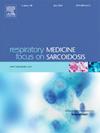Alterations in gut microbial community structure in obstructive sleep apnea /hypopnea syndrome (OSAHS): A systematic review and meta-analysis
IF 3.5
3区 医学
Q2 CARDIAC & CARDIOVASCULAR SYSTEMS
引用次数: 0
Abstract
Objectives
This systematic review investigates gut bacterial diversity and composition in patients with Obstructive Sleep Apnea-Hypopnea Syndrome (OSAHS) and examines how these changes may contribute to cardiovascular complications.
Methods
A comprehensive search was conducted in PubMed, Web of Science, and Scopus up to March 2025. After removing duplicates, titles and abstracts were screened by two reviewers, and full texts were assessed for inclusion. Data extraction on study characteristics and outcomes was performed. Methodological quality was evaluated using the Joanna Briggs Institute checklist. α-diversity was assessed using richness and diversity indices, while β-diversity examined community structure differences. Meta-analysis was conducted using standardized mean differences (SMD) and confidence intervals (CIs), and heterogeneity was assessed with the Cochrane I2 test.
Results
The review included 18 studies (16 adults, 2 pediatrics) examining the gut microbiome in OSAHS. Meta-analysis revealed significant reductions in α-diversity indices (Shannon, Chao1, observed species, ACE) in OSAHS patients, while Simpson's index showed no difference. β-diversity analyses showed distinct gut microbiome differences in OSA. Key differential bacteria included Bacteroides, Proteobacteria, Faecalibacterium, Ruminococcaceae, Megamonas, Oscillibacter, Dialister, Roseburia, and Lachnospira. Study quality was medium to high.
Conclusion
OSAHS is associated with significant gut microbiome alterations, including a reduction in beneficial bacteria and an increase in LPS-producing bacteria, leading to intestinal barrier dysfunction. These changes may contribute to systemic inflammation and elevate the risk of cardiovascular diseases.
阻塞性睡眠呼吸暂停/低通气综合征(OSAHS)患者肠道微生物群落结构的改变:一项系统综述和荟萃分析
目的:本系统综述探讨阻塞性睡眠呼吸暂停低通气综合征(OSAHS)患者肠道细菌多样性和组成,并探讨这些变化对心血管并发症的影响。方法综合检索截至2025年3月的PubMed、Web of Science、Scopus数据库。删除重复后,两位审稿人对标题和摘要进行筛选,并对全文进行纳入评估。对研究特征和结果进行数据提取。采用乔安娜布里格斯研究所的检查表评估方法学质量。α-多样性以丰富度和多样性指数评价,β-多样性以群落结构差异评价。采用标准化平均差异(SMD)和置信区间(CIs)进行meta分析,并采用Cochrane I2检验评估异质性。结果本综述包括18项研究(16项成人研究,2项儿科研究),研究了OSAHS患者的肠道微生物群。meta分析显示,OSAHS患者α-多样性指数(Shannon, Chao1, observed species, ACE)显著降低,而Simpson指数无显著差异。β-多样性分析显示OSA患者肠道微生物组存在明显差异。主要的差异细菌包括拟杆菌、变形杆菌、粪杆菌、瘤胃球菌科、巨单胞菌、Oscillibacter、Dialister、Roseburia和Lachnospira。研究质量为中高。结论osahs与肠道菌群显著改变相关,包括有益菌减少和产脂多糖菌增加,从而导致肠道屏障功能障碍。这些变化可能导致全身性炎症,并增加心血管疾病的风险。
本文章由计算机程序翻译,如有差异,请以英文原文为准。
求助全文
约1分钟内获得全文
求助全文
来源期刊

Respiratory medicine
医学-呼吸系统
CiteScore
7.50
自引率
0.00%
发文量
199
审稿时长
38 days
期刊介绍:
Respiratory Medicine is an internationally-renowned journal devoted to the rapid publication of clinically-relevant respiratory medicine research. It combines cutting-edge original research with state-of-the-art reviews dealing with all aspects of respiratory diseases and therapeutic interventions. Topics include adult and paediatric medicine, epidemiology, immunology and cell biology, physiology, occupational disorders, and the role of allergens and pollutants.
Respiratory Medicine is increasingly the journal of choice for publication of phased trial work, commenting on effectiveness, dosage and methods of action.
 求助内容:
求助内容: 应助结果提醒方式:
应助结果提醒方式:


